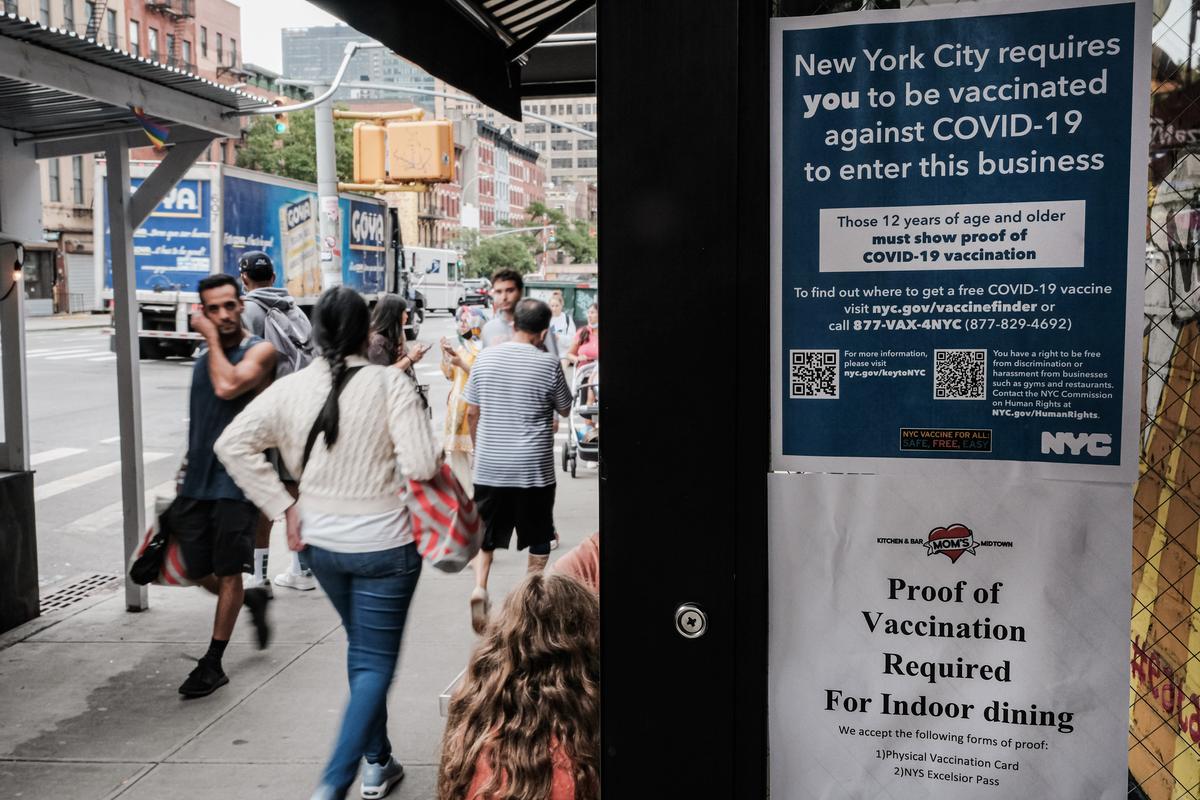‘Nullification is not revolt, all it is is ignoring: We’re taking a position that we are going to ignore this edict,’ said Tennessee state Rep. Bud Hulsey.
At a time when governments and global organizations are seeking additional powers to deal with pandemics or other catastrophes, a burgeoning effort is rising in opposition to defend local autonomy and personal liberties.
Next month, member nations of the World Health Organization (WHO) are gathering to grant the agency vast new powers during “health emergencies.”
Meanwhile, some state lawmakers are attempting to wrest back control of health issues to their states and their citizens. And although their success has been mixed, they say they’re in it for the long haul.
“We’re almost to a place in this country that the federal government has trampled on the sovereignty of states for so long that in peoples’ minds, they have no options,” Tennessee state Rep. Bud Hulsey told The Epoch Times.
“It’s like whatever the federal government says is the supreme law of the land, and it’s not,” he said. “The Constitution is the supreme law of the land.”
And federal courts eventually ruled against Biden administration mandates that forced Americans to don masks and inject experimental mRNA vaccines.
States Fight ‘Medical Authoritarianism’
In March, the Louisiana senate unanimously passed legislation that precludes international organizations from having authority over state citizens.

Other states have tried to follow this path, but have been less successful.
Maine state Rep. Heidi Sampson attempted to get a “joint order” passed in support of personal autonomy and against compliance with the WHO agreements, but it garnered little interest in the Democrat supermajority legislature.
“You should have the right to direct what you put in your body, instead of having some entity, whether it’s the state, the federal government, or some international conglomerate telling you, you must take this,” she told The Epoch Times.
“They quickly dispatched my joint order, dismissed it. I talked to key people and they just shrugged their shoulders.”
Act of Nullification
Tennessee has taken a different tack, working to enact a “nullification law,” which would give residents the right to demand that state legislators vote on whether or not to enforce regulations or executive orders that violate citizens’ rights under the federal or state constitutions.
“Executive orders are only supposed to apply to the executive branch of government,” Mr. Hulsey said. “If they go beyond that and apply to the people, now it’s law, and of course, the president can’t make laws.
“But the country acts like it’s a law,” he said.
Many examples of this occurred during the COVID-19 pandemic, when numerous directives were handed down from both the Trump and Biden administrations.

While courts ultimately ruled that federal agencies don’t have this authority, the administration issued the orders anyway and they were generally enforced by public officials and employers. Nullification would give Tennessee citizens a way to push back if they believe their rights are being violated.
“Nullification is not revolt, all it is is ignoring,” Mr. Hulsey said. “We’re taking a position that we are going to ignore this edict.”
As with many of these efforts, however, the nullification bill is facing hurdles. This bill is currently stalled in Tennessee’s state senate, which tabled it for “summer study.”
Karen Bracken, founder of Tennessee Citizens for State Sovereignty and a former county commissioner, said it’s often a long term effort.
“We just passed legislation last year against the U.N. 2030 agenda and net zero,” Ms. Bracken told The Epoch Times.
“It took 10 years to get that bill passed, so you just have to keep plugging away.”
Ms. Bracken’s organization has been instrumental in drumming up public support for the nullification bill, but she said that passing laws only goes so far to protect civil liberties if citizens don’t stand up for themselves.
“We’re giving you the tools to stand up and fight for your rights,” Ms. Bracken said. “But I can’t make you stand up and fight.”
At the federal level, similar efforts are also running into roadblocks.
The U.S. Constitution requires two-thirds Senate approval to ratify treaties, however, the question of whether or not the U.S. Senate should have a say regarding the upcoming WHO treaty has become a partisan issue.
Stirrings of Resistance in Europe
In Austria, a country that criminalized vaccine refusal in January 2022, there are efforts to resist centralization of authority.

Silvia Behrendt, a former legal consultant to the WHO and now the founder of Global Health Responsibility Agency (GHRA), called the Austrian vaccine law “a lockdown for the unvaccinated.”
“They were not allowed to buy shoes or clothes, only food and very essential things,” Ms. Behrendt told The Epoch Times. While the Austrian government didn’t strenuously enforce the law and has since revoked it, it succeeded in intimidating people to take the vaccine, she said.
Today, the GHRA is calling for new laws to protect personal autonomy in the wake of what she calls the “global health security agenda” pursued by governments during COVID-19.
Without protective laws, the group says governments, in partnership with the WHO, will assume authority and once again violate civil liberties by enacting lockdowns, forcing mass vaccinations, and taking other controlling measures.
“I thought from the very beginning that after this disaster, we need a treaty, but the content needs to be set by ourselves so something like this would never happen again,” Ms. Behrendt said.
“You need to think about the safeguards, and the first safeguard would be to have prior informed consent [for drugs and treatments] and to have the guarantee that you can refuse medical treatment,” she said. “This would be the first principle we have to legislate in a pandemic treaty.”
The GHRA is still small and staffed with volunteers, Ms. Behrendt said, and she has no illusions that success will be quick or easy.
“It has to be a long term goal, I’m very clear about that,” she said. “There are so many issues, but we figured out what would be the most important safeguard, and this would be with the people and with personal autonomy.”
Original News Source Link – Epoch Times
Running For Office? Conservative Campaign Consulting – Election Day Strategies!


